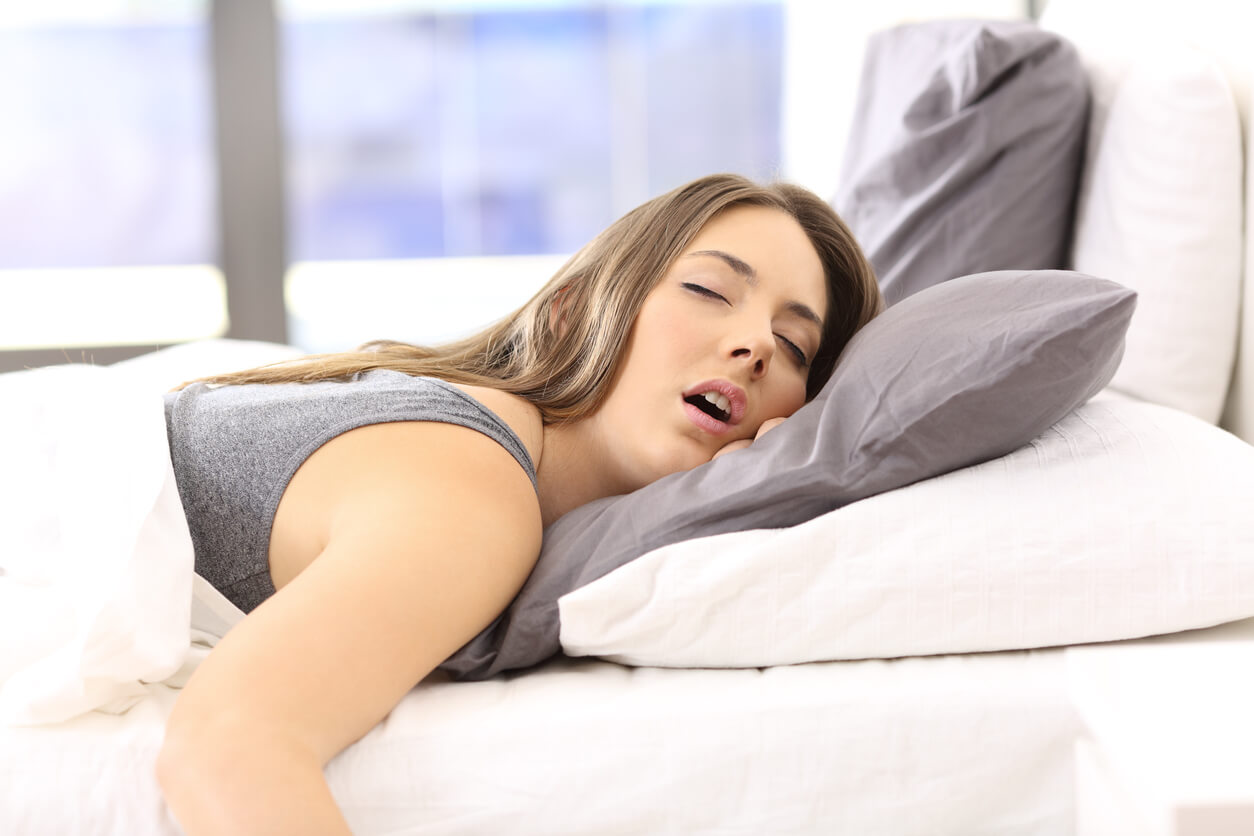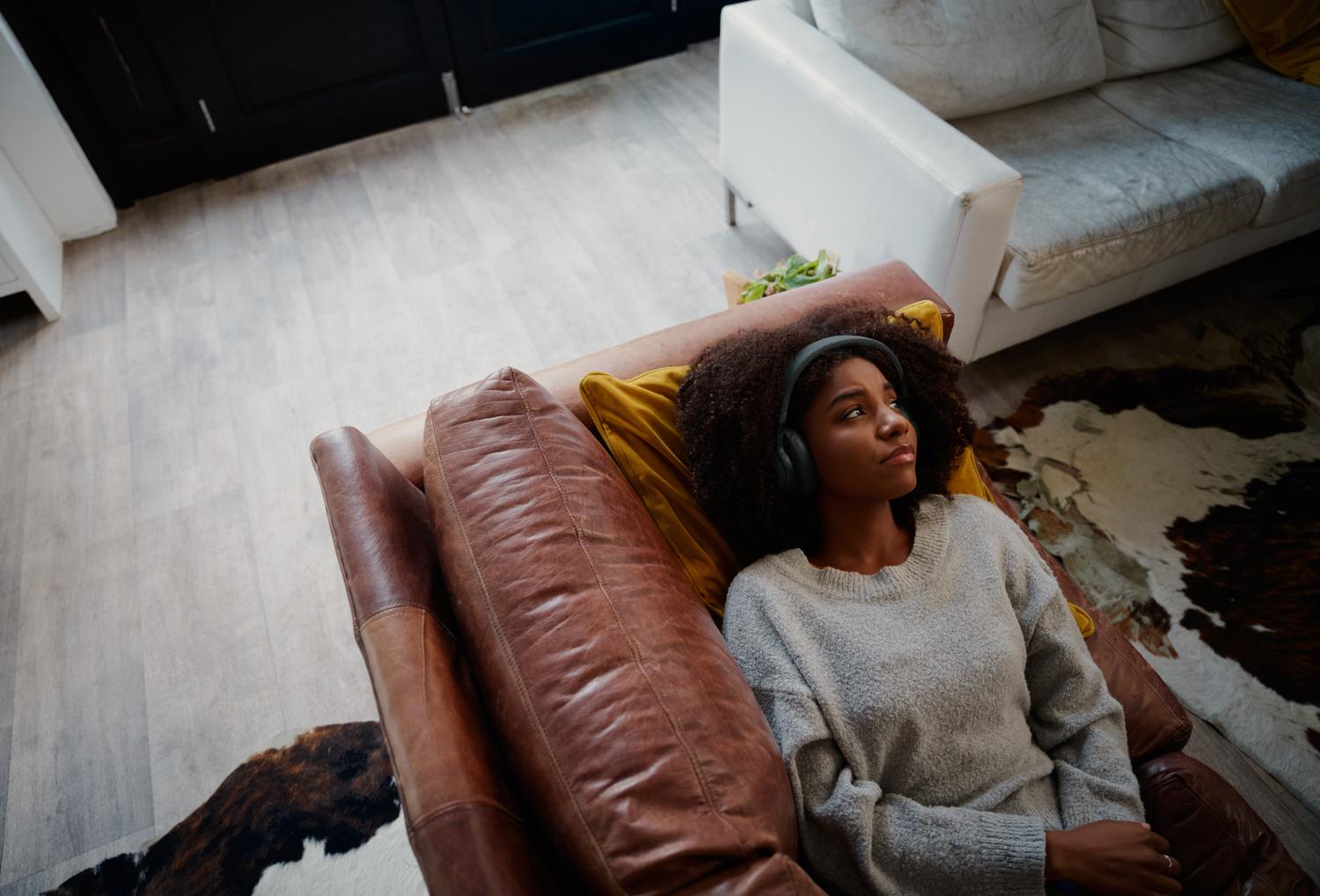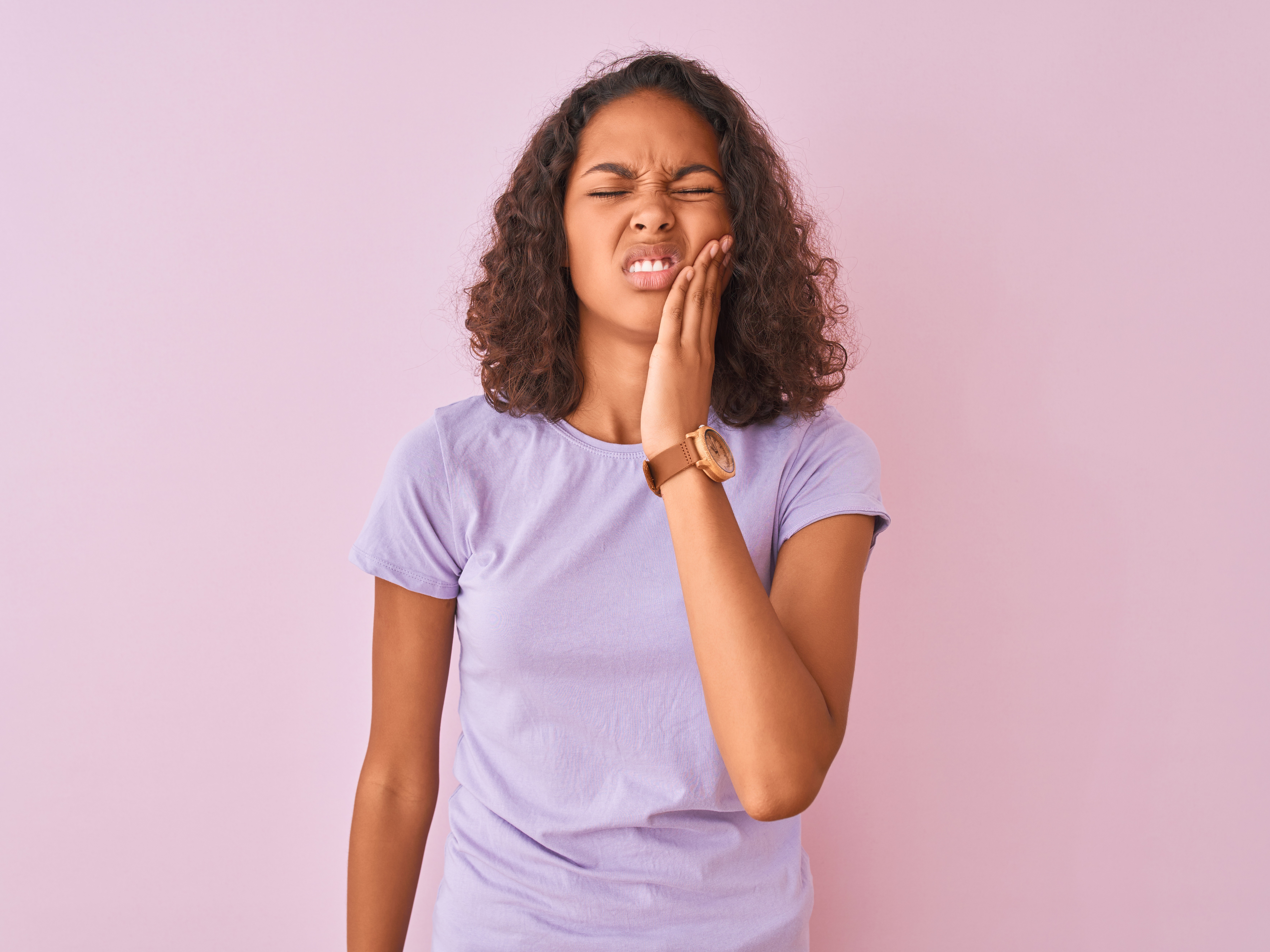Do Melatonin Sleep Gummies Really Work?
Does the idea of a fruity, chewable gummy that promises a better night’s sleep appeal to you? If it does, you’re not alone. Over the past several years, sleep gummies - fruity chews that typically contain melatonin and other sleep-inducing ingredients like l-theanine - have become increasingly popular.
And why wouldn’t they be? The combination of peaceful slumber and candy sounds like a dream team (literally). Plus, more consumers are looking for holistic, side-effect free alternatives to prescription sleep medication. In fact, Americans spent roughly $1.09 billion on melatonin supplements in 2021, up nearly 150% compared to 2018!
But growing demand for these trendy sweets also begs a serious question: do sleep gummies actually work? Read on to learn more about the safety and effectiveness of melatonin gummies for a better night’s sleep.
What are sleep gummies?
As suggested by their name, sleep gummies are fruity chews that are marketed as sleep aids. They typically contain melatonin, a hormone that is naturally produced by the pineal gland in your brain and helps to regulate your body’s sleep cycle. Some sleep gummy brands also contain stress-relieving ingredients such as cannabidiol (CBD) and l-theanine.
Sleep gummies are sold-over-the-counter (OTC) as dietary supplements. This means they do not require a prescription from a medical professional to use.
How do melatonin gummies work?
Melatonin gummies contain a synthetic version of melatonin. Melatonin helps to regulate your body’s natural sleep-wake cycle (known as your circadian rhythm). In other words, it helps your body recognize when it’s time to go to bed, and time to wake up.
The body’s melatonin levels normally rise as it becomes darker outside, signaling to your brain that it’s time to relax and get ready for bed. However, there are a number of factors that can throw off your body’s melatonin production, such as jetlag, insomnia, or looking at bright screens before bedtime. When melatonin levels are disrupted, it can make it more difficult to fall asleep.
Melatonin gummies mimic the action of melatonin, which is why they have become a popular sleep aid choice in recent years.
Benefits of melatonin gummies
For some people, the use of melatonin supplements such as gummies and tinctures can be a helpful short-term sleep aid. Those who might benefit from melatonin gummies include:
- Vision-impaired individuals with sleep disorders: Blind or vision-impaired people are often unable to perceive light well. Because of this, their melatonin production can be unbalanced, which can result in a disruption to circadian rhythms. Limited evidence suggests that melatonin supplements may help to improve sleep duration in these cases, but more research is needed for a conclusive answer.
- Frequent travelers experiencing jet lag: Melatonin gummies’ effect on circadian rhythm may be useful for travelers who have changed time zones and are struggling to adjust.
- Short-term insomnia: Some studies show that melatonin gummies can be useful for people who are struggling to fall asleep. However, there is not long-term research to support those findings. If you’ve been having difficulty falling asleep for over a month, the American Academy of Sleep Medicine recommends trying out proven methods such as cognitive behavioral therapy (CBT) and lifestyle changes.
It's important to note that research has not found melatonin to be particularly effective for shift workers, like nurses, who are struggling to adapt to unconventional sleep schedules.
Risks and side effects of sleep gummies
While some evidence has found that sleep gummies and other melatonin supplements may help users to fall asleep more easily in the short-term , there are also some risks and side effects to be aware of:
Lack of regulation
The U.S. Food and Drug Administration (FDA), the organization that evaluates the safety of food and medications, isn’t as involved with the oversight of supplements like sleep gummies. This means that sleep gummies have less restrictive rules for ingredients, marketing, and manufacturing than prescription drugs. It also means that sleep gummies can contain harmful ingredients or incorrect amounts of melatonin.
For example, a 2017 study found that in an analysis of 31 different melatonin brands, at least 70% contained an amount of melatonin that was at least 10% off from the amount listed on the bottle. Additionally, 26 of the brands contained the hormone serotonin, posing a risk forT individuals using selective serotonin reuptake inhibitors (SSRIs), a type of antidepressant that raises serotonin levels in the brain.
In other words, if you’re considering using melatonin, it’s important to be mindful that the branding, dosages and ingredients for OTC health supplements can be misleading and even harmful.
Safety concerns for children
In the last few years, melatonin supplements have been under increased scrutiny for their role in emergency pediatric incidents.
A report from the Centers for Disease Control and Prevention (CDC) found that from 2019-2022, nearly 11,000 children ended up in the emergency room as a result of ingesting melatonin supplements while unsupervised. The report also noted that these accidental ingestions and ER visits have increased by 420% in the past 10 years.
As mentioned above, there are often serious discrepancies between the amount of melatonin that’s listed in a product and the amount of melatonin that the product actually contains. This can be especially dangerous for infants and young children. To prevent these incidents, it’s important to keep sleep gummies hidden and out of reach from children.
Side effects and interactions with other medications
Because sleep gummies aren’t regulated like prescription medications, they can contain ingredients that aren’t listed on the label, such as serotonin, sweeteners and more.
These unknown ingredients can cause serious drug interactions for patients taking medications like antidepressants, blood thinners, diabetes drugs, certain contraceptives and more. Talk to your PCP or another healthcare professional if you’re on medication and considering using sleep gummies as a sleep aid.
Melatonin gummies are also not without side effects. While mild, common side effects include headaches, dizziness, nausea and drowsiness. However, most studies seem to show that the side effects generally go away once you stop taking melatonin.
Who should not take melatonin gummies?
Melatonin supplements are not suitable for everyone. Certain groups of people should exercise caution or avoid melatonin supplements altogether:
- Pregnant or breastfeeding women: The effects of melatonin on fetal development and breastfed infants have not been studied well.
- Children: Unless under the guidance of a healthcare professional, melatonin should be used cautiously in children.
- Individuals with autoimmune diseases: Since melatonin can affect immune function, people with autoimmune conditions (like rheumatoid arthritis or lupus) should be cautious, as melatonin might exacerbate their symptoms.
- Individuals with seizure disorders: People with epilepsy should consult a healthcare provider before using melatonin, as it can interact with their conditions or medications.
- Individuals with mental health disorders: Individuals with depression, anxiety, or other mental health conditions should consult with a healthcare provider before taking melatonin, as it could potentially interfere with their mental health treatment or medication efficacy.
- Individuals taking specific medications: Melatonin can interact with various medications, including blood thinners, immunosuppressants, diabetes medications, and birth control pills.
It's essential for anyone considering melatonin supplements to consult with a healthcare professional, especially if they fall into one of these groups or are currently taking other medications.
Are melatonin gummies safe?
While melatonin sleep gummies appear to be relatively safe for short-term use in non-pregnant adults, there is not enough research on their long-term effects. Because they aren’t as regulated the same way that prescription sleep aids are, there are also safety concerns about incorrect dosage amounts, unnamed ingredients and more.
If you’re having trouble falling asleep, it may be best to explore some other methods for healthy sleep habits, like exercising more often, eating healthier, or avoiding certain stimulants like nicotine or caffeine.
Tips for better sleep without melatonin gummies
Creating (and maintaining) healthy sleep habits - without quick fixes like sleep gummies - is key to a good night’s sleep. Here are several tips for getting quality rest without relying on sleep aids like melatonin:
- Maintain a consistent sleep schedule: Create a bedtime routine that actually works for you! Do your best to go to bed and wake up at similar times every day, even on weekends. This consistency reinforces your body's sleep-wake cycle.
- Optimize your sleep environment: Make your bedroom conducive to sleep. Keep it cool, dark, and quiet. Consider using blackout curtains, eye masks, earplugs, or white noise machines if necessary.
- Invest in a comfortable mattress and pillows: Ensure your sleeping arrangements are supportive and comfortable. The quality of your mattress and pillows can significantly impact your sleep.
- Limit exposure to screens before bed: Blue light from phones, tablets, and computers can trick your body into thinking it’s daytime. Try to avoid screens at least an hour before bedtime.
- Exercise regularly (but not before bed): Regular physical activity can help you fall asleep faster and enjoy deeper sleep. However, exercising too close to bedtime can have the opposite effect for some people.
- Watch your diet: Avoid heavy or large meals within a couple of hours of bedtime. Also, be cautious with nicotine, caffeine and alcohol, as they can disrupt sleep. If you can’t live without coffee, try to establish a cutoff time in the morning so that you’re not drinking it too late in the day.
- Expose yourself to natural light: Natural light exposure during the day helps regulate your melatonin levels. Try to spend some time outdoors or in brightly lit areas during the day to regulate your sleeping patterns.
- Practice mindfulness or meditation: Stress and anxiety can play a major role in sleeplessness. Techniques such as mindfulness, meditation, or deep breathing exercises can reduce stress and promote better sleep.
If you've tried various strategies and still struggle with sleep, it may be time to consult a healthcare provider. They can help identify any underlying conditions and offer treatment that’s personalized to your health needs!
Natural alternatives to melatonin gummies
If you’re in search of an alternative to melatonin gummies, you may want to consider natural sleep aids like chamomile, lavender and valerian root:
- Lavender can be used in various forms, such as essential oils for aromatherapy, dried lavender in sachets or lavender-infused bath products, providing a natural and holistic approach to improving sleep. The aroma of lavender has been shown to lower heart rate and blood pressure, potentially making it easier to transition into a peaceful sleep.
- Chamomile contains apigenin, an antioxidant that binds to certain receptors in the brain that may promote sleepiness and reduce insomnia. Many people find that drinking chamomile tea before bedtime helps them to feel more relaxed and ready for sleep.
- Valerian root, which is sold in teas and capsules, is a plant that is thought to work by increasing levels of a neurotransmitter called gamma-aminobutyric acid (GABA) in the brain. This has a calming effect and can help manage anxiety and promote relaxation. Studies on valerian root have shown mixed results, but many people report significant improvements in their sleep patterns when using this supplement.
While it’s always best to consult with your provider, these natural sleep aids are generally considered to be safe, gentle, and side-effect free in moderate amounts.
When to speak with a doctor about your sleep
While melatonin gummies can be a helpful way to cope with short-term sleep problems, they’re not a long-term solution for quality sleep - and their side effects can actually harm your sleep health in the long run.
It may be time to talk to a sleep specialist if you’re consistently experiencing any of the following issues:
- Loud snoring
- Feeling tired throughout the day, even when you got 7 hours of sleep
- Difficulty falling asleep
- Difficulty staying asleep
- Difficulty staying awake during the day
- Feeling like you’re struggling to focus at work or school
If you find yourself waking in the middle of the night gasping for air, or if you’re on a new medication that seems to be impacting your sleep, you should get in touch with your doctor right away for prompt medical advice.
How Sesame can help
If you’re tossing and turning, you can book anonline doctor visit to speak with a provider about what’s keeping you up at night. Your provider can help to evaluate your sleep problems and provide you with treatment recommendations for a good night’s sleep.









